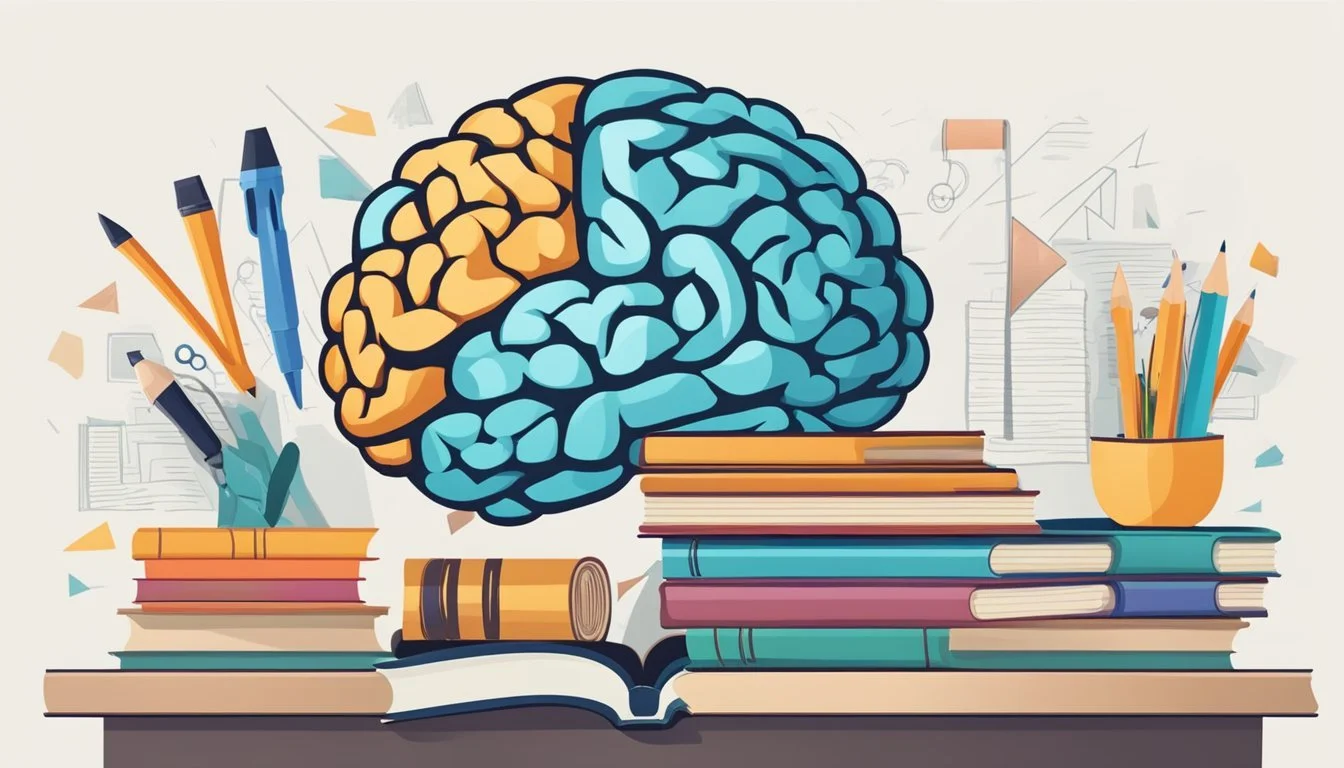6 Ways to Develop a Growth Mindset
Practical Strategies for Success
A growth mindset is essential for personal and professional development. By adopting a growth-oriented outlook, individuals can embrace challenges, learn from feedback, and persist in the face of setbacks.
This mindset helps people unlock their potential and achieve their goals. In this article, six practical strategies will be explored to help cultivate and strengthen a growth mindset.
1) Embrace Challenges
Embracing challenges is a key aspect of developing a growth mindset. When individuals face difficulties head-on, they learn to stretch their capabilities and grow from the experience.
Challenges present opportunities to discover new skills and strategies. By tackling problems, individuals can build resilience and improve their problem-solving abilities. This mindset helps them view setbacks as a natural part of the learning process.
It's important to remember that every challenge provides valuable lessons. The more individuals expose themselves to challenging situations, the more adept they become at navigating them. This leads to greater confidence and adaptability.
Viewing challenges as learning opportunities rather than threats fosters a positive attitude toward growth. This perspective encourages persistence and perseverance, essential traits for achieving long-term success. Embracing challenges helps individuals transform obstacles into stepping stones for personal and professional development. For additional tips, see these six ways to develop a growth mindset.
2) Learn from Criticism
Criticism, when approached correctly, can be a significant tool for personal growth. To start, it's vital to listen to the feedback attentively. Paying attention and understanding the specifics helps clarify what needs improvement.
Writing down the exact feedback word for word can be helpful. This avoids misinterpretation and keeps the comments in their intended context.
Next, they should reflect on the criticism without taking it personally. Separating themselves from their work helps maintain objectivity. A constructive approach to feedback can reveal areas where they can hone their skills.
By embracing this process, they can use criticism as a map to guide their development. It is about identifying weaknesses and turning them into strengths. This mindset transforms critiques into powerful lessons.
Developing a habit of seeking feedback regularly can accelerate growth. Constructive criticism offers perspectives that might not be visible to them initially. It provides insights that are essential for improvement.
Learning from criticism requires consistent effort and resilience. It's important to remember that every piece of feedback is a step toward becoming better. They should view each critique as an opportunity to refine and advance.
For further insights, exploring articles such as Turn Criticism Into an Opportunity for Growth can provide additional strategies on this topic.
3) "Success is not final, failure is not fatal." - Winston Churchill
Winston Churchill once said, "Success is not final, failure is not fatal. It is the courage to continue that counts." This quote highlights the importance of resilience in the pursuit of success.
Success and failure are both temporary states. They are part of a continual process of growth and learning. By recognizing this, individuals can use each experience as a stepping stone rather than a definitive endpoint.
Embracing resilience means understanding that neither success nor failure defines a person. Instead, the ongoing effort and persistence are what truly matter. This mindset encourages continuous improvement and learning.
A resilient mindset helps individuals recover from setbacks more effectively. Rather than feeling defeated by failure, they view it as a learning opportunity. Similarly, they do not rest on their laurels after success but strive for further achievements.
Ultimately, Churchill's words serve as a reminder that progress is fueled by the willingness to keep going. This perspective is crucial for developing a growth mindset and achieving long-term goals. For more insights on this topic, refer to Embracing Resilience: The Wisdom of Winston Churchill's Timeless Quote.
4) Seek Feedback
Actively seeking feedback is crucial for those looking to develop a growth mindset. Feedback provides insights into areas of improvement and highlights strengths that might otherwise go unnoticed. This process can accelerate personal and professional growth.
People with a growth mindset view feedback as an opportunity rather than a threat. They understand it helps them to refine their skills and achieve their goals. Including the word “yet” in feedback discussions, like saying “I haven't mastered this skill yet,” can help maintain a positive outlook.
When receiving feedback, it's essential to focus on actionable steps. Implementing these steps can turn feedback into tangible improvements. By embracing these challenges, individuals can foster a mindset that thrives on continuous learning.
Creating an environment where feedback is welcomed can also benefit teams and organizations. It encourages open communication and collective growth. Both the feedback giver and receiver can learn and improve their performance.
For a deeper dive into how to effectively receive feedback with a growth mindset, explore more strategies here. Additionally, understanding how to give feedback in a way that encourages growth can be found here.
Actively seeking and implementing feedback contributes significantly to one's development. This proactive approach is a key component of maintaining and nurturing a growth mindset.
5) Cultivate Resilience
Cultivating resilience is essential for developing a growth mindset. Resilience, the ability to bounce back from setbacks, allows individuals to face challenges head-on and learn from them. One effective way to build resilience is through self-compassion, which involves treating oneself kindly during difficult times.
Regular exercise also contributes to resilience. Physical activity not only enhances physical health but also boosts mental well-being. Engaging in activities like running, yoga, or even walking can help individuals manage stress better and improve their ability to cope with adversity.
Learning new skills expands one's adaptability. When people continuously acquire new knowledge or abilities, they become more equipped to handle changes and unexpected situations. This process strengthens resilience by fostering a sense of competence and confidence.
Spending time laughing and staying positive can also bolster resilience. Humor and maintaining an optimistic outlook help people navigate tough times more effectively. They break the stress cycle and allow for a moment of relief, making it easier to face challenges afterward.
By embracing these practices, individuals strengthen their resilience. This enhancement, in turn, supports the development of a growth mindset.
6) Celebrate Effort
Celebrating effort is essential in fostering a growth mindset. By acknowledging the hard work, individuals learn to value the process rather than just the outcome. This perspective helps them see challenges as opportunities for development.
Instead of solely focusing on achievements, recognizing the steps taken to reach a goal can be very motivating. It encourages a continuous pursuit of learning and self-improvement.
Celebrating effort can be done in various ways. Simple gestures like verbal praise, written notes, or even small rewards can make a big difference. The key is to reinforce the idea that effort and persistence are just as important as the final result.
Creating a supportive environment where effort is acknowledged helps to build a resilient mindset. People are more likely to take risks and push their boundaries when they know their efforts will be recognized.
It's also important to encourage self-reflection on the effort made. Reflecting on what worked well and what can be improved fosters a deeper understanding of personal growth and development. This practice helps internalize the value of effort and perseverance.
By focusing on effort, individuals learn to see setbacks as temporary and surmountable. They understand that progress takes time and that every step forward, no matter how small, is a victory worth celebrating. For more insights, you can explore ways to celebrate your growth.
Understanding the Concept of a Growth Mindset
Developing a growth mindset revolves around the belief that abilities and intelligence can be cultivated through effort and learning. This stands in stark contrast to a fixed mindset, where individuals believe their attributes are static.
Definition of a Growth Mindset
A growth mindset is the belief that abilities and intelligence can be developed with effort, learning, and dedication. Carol Dweck, a renowned psychologist, popularized this concept. People with a growth mindset embrace challenges and view failures as opportunities for learning. They see effort as necessary for mastery and are more likely to persist in the face of setbacks.
This attitude enables continuous learning and development, making individuals more adaptable and resilient. Growth mindset advocates often focus on self-improvement and are open to feedback, viewing it as a tool for personal and professional growth. Embracing a growth mindset fosters motivation and enhances performance, leading to long-term success.
Growth vs. Fixed Mindset
A growth mindset contrasts sharply with a fixed mindset. While a growth mindset believes in the potential for development, a fixed mindset holds that abilities and intelligence are innate and immovable. These differing viewpoints have significant implications.
Those with a fixed mindset may avoid challenges, give up easily, and feel threatened by the success of others. They tend to focus on proving their worth rather than improving themselves. In contrast, individuals with a growth mindset seek out new experiences and learning opportunities to develop their skills.
They understand that effort leads to improvement and are more resilient when facing difficulties. This mindset fosters resilience and a deeper engagement in tasks, ultimately leading to greater achievements and personal fulfillment.
Scientific Basis of a Growth Mindset
The growth mindset is grounded in extensive psychological research and neuroscience. Understanding how beliefs about intelligence and abilities can shape individual behavior is key to applying these principles effectively.
Research and Studies
Carol Dweck, a professor at Stanford University, pioneered the concept of a growth mindset. Her research demonstrated that individuals who believe abilities can be developed through effort are more likely to persevere in the face of challenges. Dweck's book, Mindset: The New Psychology of Success, highlighted these findings and emphasized their application in educational settings.
A national experiment revealed that growth mindset interventions can improve students' effort beliefs and academic achievements. The intervention aimed to shift students' perceptions of effort, showing that hard work doesn't signify a lack of ability. Schools implementing these interventions have reported positive outcomes in student resilience and performance.
Neuroscience of Learning and Growth
Neuroscience supports the growth mindset theory by demonstrating the brain's plasticity. Studies have shown that engaging in challenging tasks can lead to new neural connections, essentially proving that the brain can grow and adapt with practice and effort.
Research on neuroplasticity indicates that when individuals tackle difficult problems, their brains form stronger, more efficient pathways. This is evident in studies where learners practicing new skills showed measurable changes in brain structure.
Additionally, the release of neurotransmitters like dopamine during successful problem-solving reinforces motivation and learning. This positive feedback loop helps sustain effort and encourages continuous growth, supporting the idea that abilities can be cultivated through persistent effort and learning.



